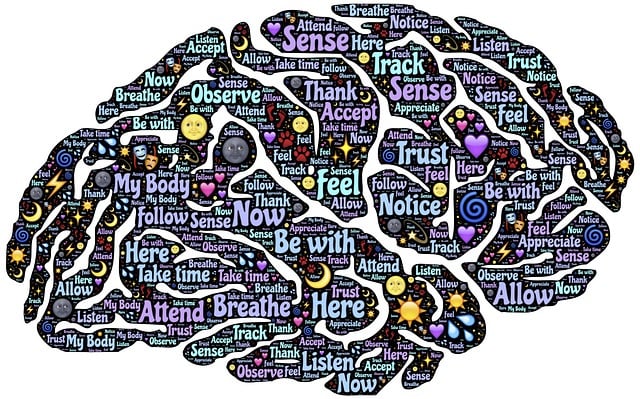Cultural competency is key in healthcare, especially for young children experiencing trauma. By understanding and respecting diverse cultural backgrounds, providers create safe spaces and tailor therapy to individual needs, reducing stigma and fostering trust. Incorporating cultural sensitivity into mental wellness programs enhances coping skills and overall well-being. Trauma significantly impacts young children's emotional development, and cultural context plays a vital role in healing processes. Training healthcare providers in cultural competency, using simulations and workshops, ensures equitable care for marginalized communities. This holistic approach, focusing on therapy for young children trauma, improves outcomes through culturally tailored interventions and enhanced communication.
Cultural competency in healthcare is essential for providing effective treatment, especially for young children. This article explores the critical need for cultural competency training among healthcare providers, focusing on trauma’s impact on young kids and offering practical strategies for implementation. We delve into case studies showcasing successful cultural competent care, emphasizing the importance of understanding diverse backgrounds to deliver sensitive therapy for traumatized young children. By addressing these aspects, we aim to enhance healthcare outcomes.
- Understanding Cultural Competency in Healthcare for Young Children
- The Impact of Trauma on Young Children and its Cultural Context
- Strategies for Incorporating Cultural Competency Training for Healthcare Providers
- Case Studies: Effective Cultural Competent Care for Traumatized Young Children
Understanding Cultural Competency in Healthcare for Young Children

Cultural competency in healthcare is an essential aspect when providing services for young children, especially those who have experienced trauma. Understanding and respecting a child’s cultural background, beliefs, and behaviors allows healthcare providers to create a safe and supportive environment. This approach ensures that the therapy for young children with trauma is culturally sensitive, effective, and tailored to their unique needs.
Developing mental wellness coaching programs that incorporate cultural competency can significantly contribute to coping skills development. By addressing the mental illness stigma reduction efforts, these programs aim to foster an inclusive atmosphere, promoting open communication and building trust between caregivers and children. Such initiatives play a crucial role in enhancing the overall well-being of young individuals navigating their mental health journeys.
The Impact of Trauma on Young Children and its Cultural Context

Trauma can have profound and lasting effects on young children, shaping their emotional development and overall well-being. Children’s brains are highly malleable during early years, making them particularly susceptible to external influences. When a child experiences trauma, whether it’s abuse, neglect, or exposure to violent events, it disrupts their normal growth patterns. This can result in various behavioral, social, and cognitive challenges that may persist into adulthood if left unaddressed.
In a cultural context, the understanding and response to childhood trauma vary across communities. Different cultural beliefs and practices shape how families and caregivers perceive and cope with traumatic events. For instance, some cultures emphasize collective healing through community support networks, while others prioritize individual resilience and self-reliance. Mental Health Awareness programs that incorporate Cultural Competency Training can help healthcare providers tailor therapy for young children trauma, considering these cultural nuances. By understanding the specific Emotional Healing Processes within diverse communities, providers can employ effective Communication Strategies to build trust, ensure cultural sensitivity, and ultimately improve outcomes for traumatized children.
Strategies for Incorporating Cultural Competency Training for Healthcare Providers

Incorporating cultural competency training into healthcare provider education is a multifaceted approach to ensure equitable care for diverse patient populations. One effective strategy involves integrating cultural awareness and sensitivity into the curriculum from the outset, normalizing discussions about cultural differences in medical schools and nursing programs. This foundational step sets the tone for future interactions with patients from varied backgrounds. Additionally, practical simulations and role-playing scenarios can be employed to train healthcare providers in navigating complex cultural dynamics, especially when dealing with sensitive issues like trauma, which disproportionately affects marginalized communities. These exercises allow professionals to practice empathetic communication and adaptive therapeutic techniques tailored to diverse cultural contexts, thereby enhancing their ability to offer appropriate support for young children experiencing trauma.
To further strengthen cultural competency, ongoing professional development workshops and seminars can provide advanced training in specific areas such as racial equity, cultural humility, and trauma-informed care. These continuous learning opportunities equip healthcare providers with the latest research and evidence-based practices for promoting emotional well-being and mental wellness across different cultures. Trauma support services tailored to address cultural barriers can also be integrated into existing healthcare systems, ensuring that patients receive holistic care that respects their unique needs and experiences.
Case Studies: Effective Cultural Competent Care for Traumatized Young Children

Cultural competency training plays a pivotal role in equipping healthcare providers to deliver effective therapy for young children trauma. Case studies demonstrate that understanding and addressing cultural nuances can significantly enhance mental health outcomes. For instance, a study focusing on a diverse urban community highlighted the importance of incorporating family dynamics and community resources into risk assessment for mental health professionals. This approach not only improves access to care but also ensures culturally sensitive interventions tailored to each child’s unique background.
Mental wellness education programs design should incorporate these cultural competencies to foster empathy and effective communication. By integrating knowledge about diverse communities, healthcare providers can better navigate complex family structures and social contexts, providing more holistic support for traumatized young children. Such initiatives contribute to the overall goal of improving mental health services, ensuring that every child receives culturally competent care.
Cultural competency training is a vital tool in enhancing healthcare delivery for young children, especially those who have experienced trauma. By understanding cultural contexts and incorporating strategies that address these differences, healthcare providers can offer more effective therapy for young children trauma. The case studies presented highlight the positive impact of culturally competent care, emphasizing its potential to improve outcomes and foster healing. As we navigate the complex landscape of pediatric healthcare, continuing education and a commitment to diverse practices are essential to ensuring every child receives the best possible support.














